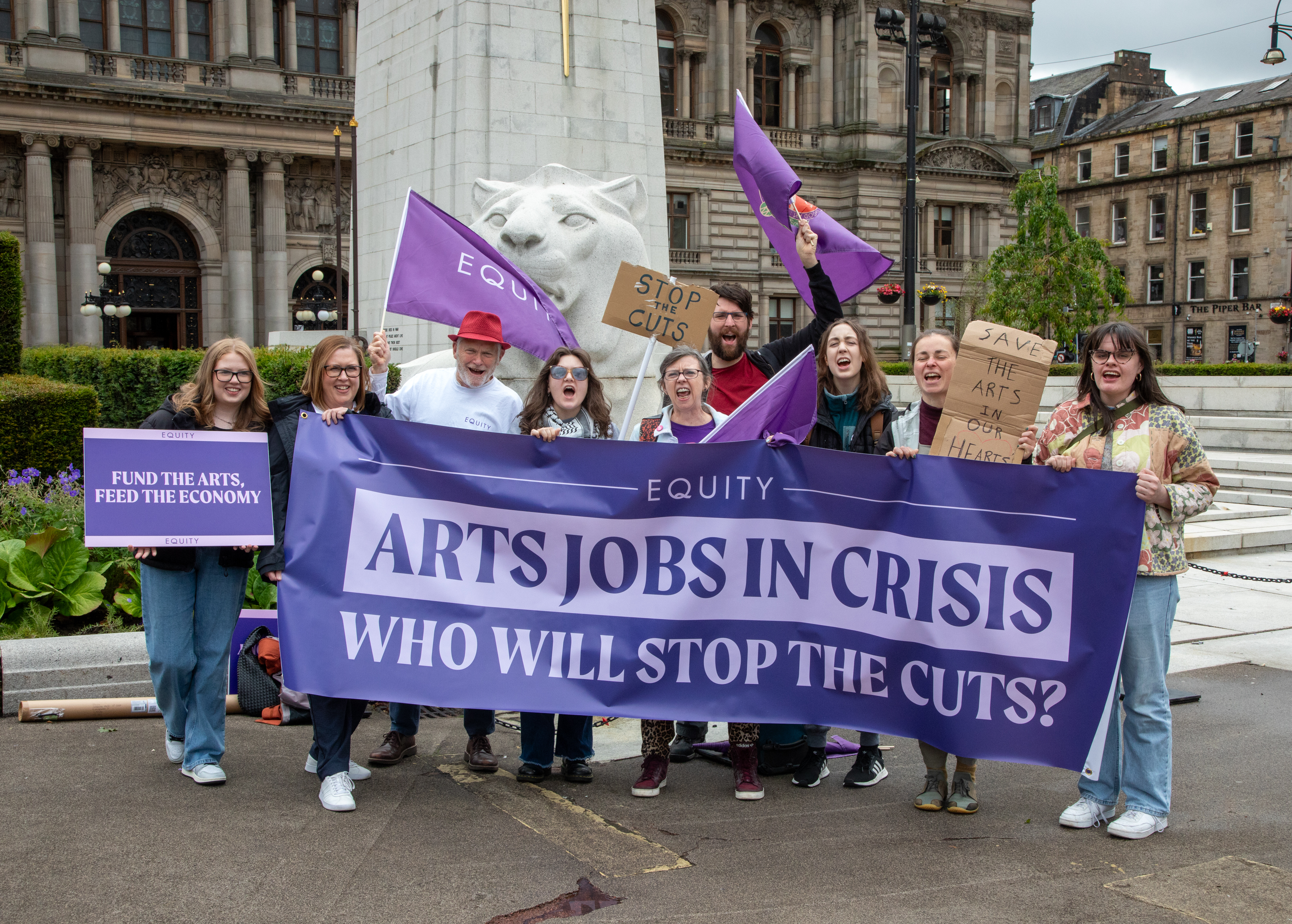World
Equity calls on Scottish politicians to save arts funding | Equity

Equity members held a protest in George Square, Glasgow, yesterday (2 July) to draw attention to the city’s arts funding crisis and to encourage voters to save the arts at the upcoming general election.
The protest came after new analysis of arts council funding by Equity revealed that one Glasgow constituency has lost £11 million in public arts funding since 2017, with millions of pounds lost elsewhere in the city.
Equity’s research shows that Glasgow North has taken a 77% cut in funding from Creative Scotland since 2017, with Glasgow East losing 63% of its funding, or £7.6 million. Glasgow West has seen a 2% funding drop.
These come on top of sweeping reductions in local government funding for the arts because of austerity, which have seen over £800m wiped from local arts budgets across the UK since 2010, according to the House of Commons Library.
The research was published as part of Equity’s campaign for all political parties to set out a plan which commits to increase arts funding to the European average of 0.5% of GDP at this general election.
Alongside this vital call for more arts funding, the union wants to see action to tackle the high fees charged by casting directories, reform to Universal Credit, a guarantee that publicly funded work will be made on decent union terms and conditions, and new legislation to protect royalties and secondary payments.
Commenting on the research, Equity’s General Secretary, Paul W Fleming, said:
“For 20 years we have experienced crushing austerity in the arts and entertainment, under governments of every shade. Our five election demands of all the parties make reversing these harsh funding cuts a top priority.”
“We also want to ensure that whoever forms the next government focuses on the rights of our precarious, freelance membership. A new government must support our members, and all working people, to secure their fair share of the profits they create. The workforce make the creative industries, it’s time they were valued as much by politicians as they are by audiences the world over.”





